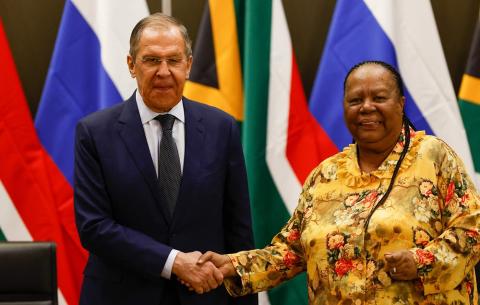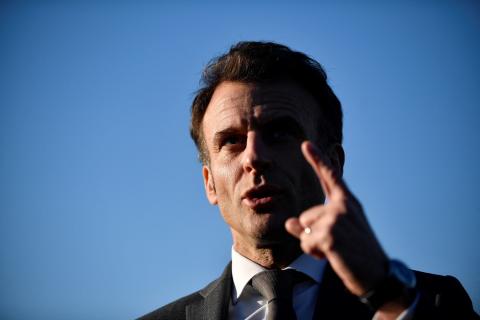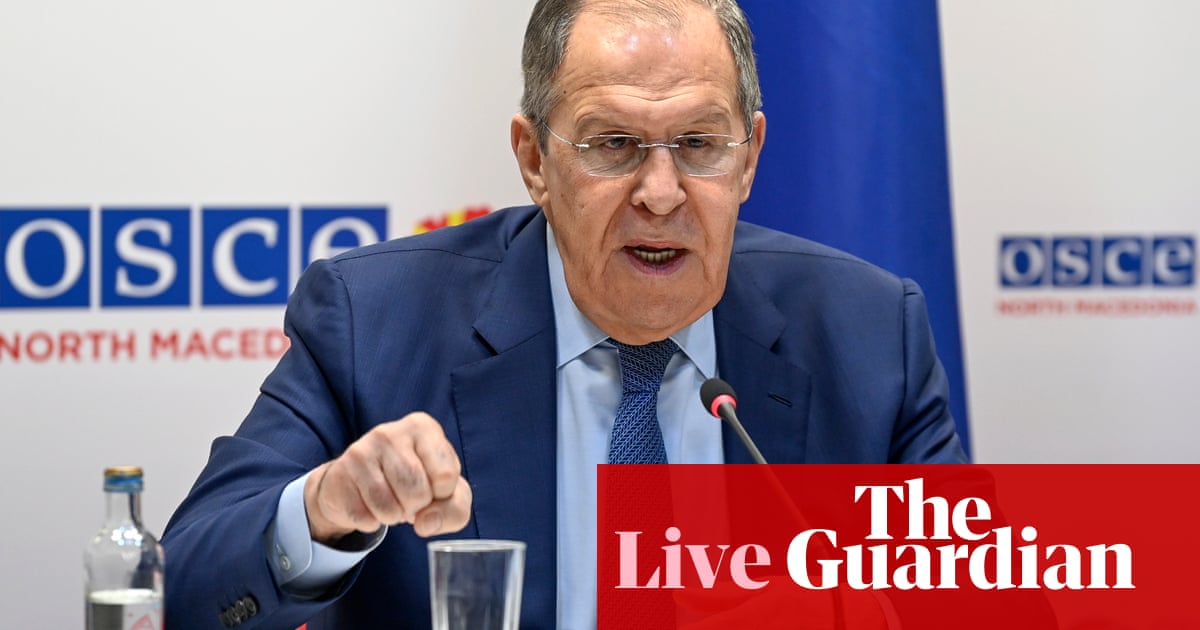
Moscow was willing to negotiate with Ukraine in the early months of the war but the US and other Western nations advised Kyiv against it, Russian Foreign Minister Sergei Lavrov said Monday.
Lavrov's remarks on a visit to South Africa were similar to those made last year by Russian President Vladimir Putin that his country was for talks but Ukraine's Western allies prevented that from happening.
The US and other Western nations have said that Russia is not serious about negotiations to end the war, set to mark its one-year anniversary next month.
"It is well known that we supported the proposal of the Ukrainian side to negotiate early in the special military operation and by the end of March, the two delegations agreed on the principle to settle this conflict," Lavrov said.
"It is well known and was published openly that our American, British, and some European colleagues told Ukraine that it is too early to deal, and the arrangement which was almost agreed was never revisited by the Kyiv regime."
Russia has repeatedly rejected Ukrainian and Western demands that it withdraw completely from Ukraine as a condition for any negotiations. President Joe Biden has indicated he would be willing to talk with Putin if the Russian leader demonstrated that he seriously wanted to end the invasion.
Lavrov is in Pretoria for talks with his South African counterpart Naledi Pandor as Russia pushes to strengthen ties with Africa's most developed country and an historical ally amid the ongoing conflict in Ukraine.
South Africa was seen as the most significant of several African nations to take a neutral stance on the war and refuse to condemn Russia's invasion - to the disappointment of the US and other Western partners who also view South Africa as pivotal to their plans to build relationships in Africa.
Lavrov met with Pandor in the South African capital and is expected to visit other African countries on his trip. It’s Lavrov’s second visit to Africa in the space of six months as Russia seeks to rally support.
The war in Ukraine and its impact on Africa’s 1.3 billion people, which includes rising global oil and food prices, is expected to take center stage during Lavrov's talks with Pandor.
"We are fully alert that conflict, wherever it exists in the world, impacts negatively on all of us, and as the developing world it impacts on us particularly as the African continent," Pandor said. "This is why as South Africa we consistently articulate that we will always stand ready to support the peaceful resolution of conflicts in the continent and throughout the globe."
South Africa continues to keep strong bonds with Russia following the Soviet Union's support for the country's current ruling party, the African National Congress, when it was a liberation movement fighting to end the apartheid system of repression against South Africa's Black majority.
That relationship is largely what led South Africa to abstain from a United Nations vote last year condemning Russia’s actions in Ukraine.
Despite South Africa's expressed neutrality over Ukraine, Lavrov’s visit comes days after the South African armed forces announced they would hold joint drills with the Russian and Chinese navies off its eastern coast next month.
Lavrov's visit to Africa last year was closely followed US Secretary of State Antony Blinken's trip to South Africa that was seen as a US bid to counter expanding Russian influence in a strategically important continent.
This time, US Treasury Secretary Janet Yellen visited Senegal and Zambia ahead of an official visit to South Africa starting Wednesday.












